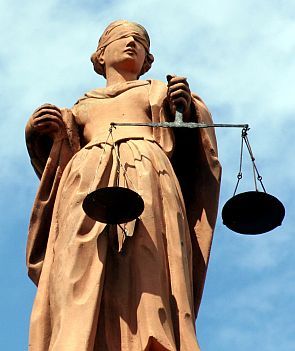 Supreme Court advises temperance in criticising judges who make bona fide errors, says M J Antony.
Supreme Court advises temperance in criticising judges who make bona fide errors, says M J Antony.
The torrent of criticism against the Supreme Court judgment on the gay rights issue last week bared, if anything, the unenviable position of judges. Unlike politicians, criminals and others accused of wrongs, they cannot defend themselves publicly. Judges don't get even a one-sixth slot on the split screen on television where the liberals shred them for misreading law. They must conform to their traditional image as an epitome of serenity with inscrutable expression. Whatever they have to say must be written and delivered only in the court room, in frosty tenor.
But when they write, they can wield the pen in ways you can't imagine. The Supreme Court has rebuked high court judges who rebuked district judges and down the pecking order. Even bystanders who suffered judicial swipes have come to the court pleading that uncharitable comments be expunged, like chief ministers who have to contest elections, bureaucrats and judicial officers whose confidential records have been smeared. A few days ago, the apex court reminded the judges below about the virtues of sobriety in judicial language. It did so while removing derogatory remarks made by the Delhi high court against a district judge in the judgment, S N Dingra vs State.
The judge was castigated for flouting rules laid down by the high court in offences under the Negotiable Instruments Act. After charging him with 10 lapses, the high court advised him "to be careful in future in acting upon the dictums handed down by this court lest he lands himself for action for contempt of court". When the aggrieved judge approached the Supreme Court, it found that the remarks were unnecessary in the context of the case. Moreover, the judge was not heard before serving such damning observations with serious consequences to his career. While expunging the remarks, the Supreme Court said that certain "decorum and demeanour" must be maintained by presiding officers and "the language used in judgments should be restrained and temperate as well as being definite. There is no room for the use of loose or foul language in a judicial pronouncement".
Intemperate language used against judges in the lower rung of the hierarchy is more prevalent than one assumes. The Supreme Court has passed several judgments on this kind of aberration. A few months ago, it dealt with a case in Awani Kumar vs High Court of Allahabad. The district judge who dealt with a case against the state urban development authority moved the Supreme Court apprehending that the high court admonition would affect permanently not only his reputation but also his entire career. The high court had directed that its strictures should be placed in his service records and referred the matter to the chief justice for disciplinary action.
On appeal, the Supreme Court noted that the high court had not even stated what the fault of the judge was, and there was no logic in castigating him. The judgment pointed out that every day, the higher courts come across mistakes of law made by judges below. The appellate court corrects the errors. "Our legal system acknowledges the fallibility of judges, hence, it provides appeals and revisions," the court said and added, "Lower judicial officers mostly work under a charged atmosphere and are constantly under psychological pressure and they do not have the facilities which are available in the higher courts."
This sympathetic view was evident in another leading judgment, in the case of K, a judicial officer. The court gave sage advice to the judiciary at all levels: "The role of the high court is of a friend, philosopher and guide of judiciary subordinate to it. The strength of power is not displayed solely in cracking a whip on errors, mistakes or failures; the power should be so wielded as to have propensity to prevent and to ensure exclusion of repetition committed once innocently or unwittingly."
With the rise of public interest litigation, ministers and civil servants also face destructive comments in judgments. In State of Maharashtra vs Public Concern for Governance Trust, the chief minister and an IAS officer were the targets of the Bombay high court while dealing with land allotments. The officer faced disciplinary action. Both, the IAS officer and the chief minister, appealed to the Supreme Court which removed the censure.
The apex court also had to retract imprudent remarks several times. In 1999, a judge of the Patna high court in State of Bihar vs Nilmani Sahu case was peeved by its remark that his view was "most atrocious". He moved the court and this time it deleted the hurtful passages. But not always. Two years ago, Justice Markandey Katju wrote that there was "something rotten" in the Allahabad high court. When a review was moved, he returned it underlining that the high court indeed deserved the flak.
In Dilip Kumar vs State of Assam (1996), the court had laid down three tests to justify strictures. They are: whether the party whose conduct is in question is before the court or has an opportunity for defending himself, whether there is evidence justifying the remarks, and whether it is necessary to decide the case.










